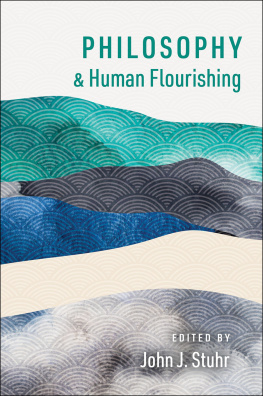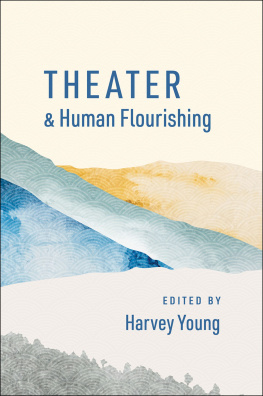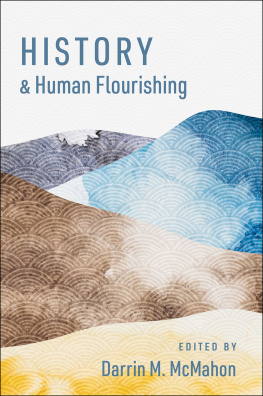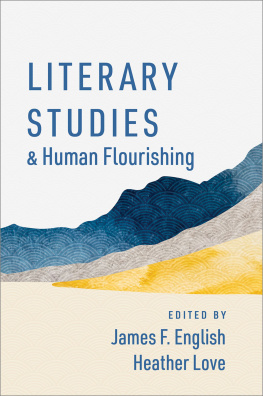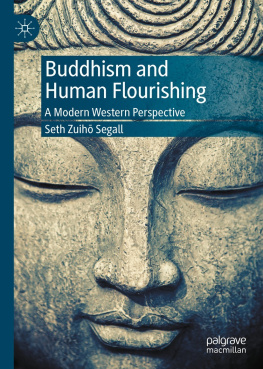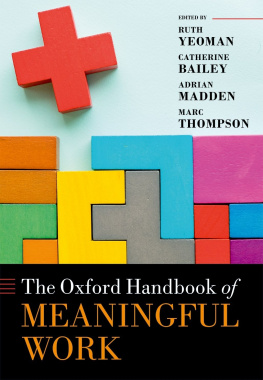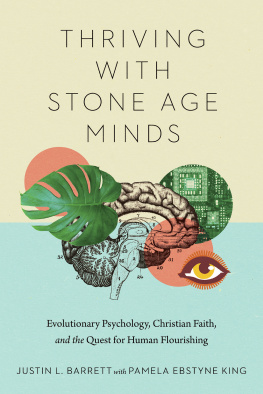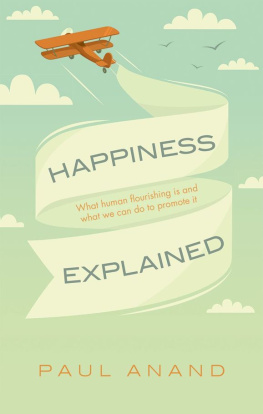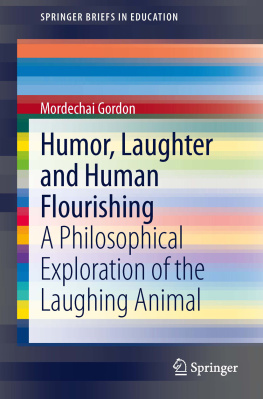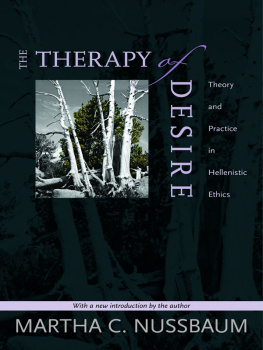Philosophy and Human Flourishing
THE HUMANITIES AND HUMAN FLOURISHING
Series editor: James O. Pawelski, University of Pennsylvania
Other volumes in the series
Philosophy and Human Flourishing
Edited by John J. Stuhr
History and Human Flourishing
Edited by Darrin M. McMahon
Literary Studies and Human Flourishing
Edited by James F. English and Heather Love
Religious Studies, Theology, and Human Flourishing
Edited by Justin Thomas McDaniel and Hector Kilgoe
Theater and Human Flourishing
Edited by Harvey Young
Cinema, Media, and Human Flourishing
Edited by Timothy Corrigan
Music and Human Flourishing
Edited by Anna Harwell Celenza
Visual Arts and Human Flourishing
Edited by Selma Holo
The Humanities and Human Flourishing
Edited by James O. Pawelski

Oxford University Press is a department of the University of Oxford. It furthers the Universitys objective of excellence in research, scholarship, and education by publishing worldwide. Oxford is a registered trade mark of Oxford University Press in the UK and certain other countries.
Published in the United States of America by Oxford University Press
198 Madison Avenue, New York, NY 10016, United States of America.
Oxford University Press 2023
All rights reserved. No part of this publication may be reproduced, stored in a retrieval system, or transmitted, in any form or by any means, without the prior permission in writing of Oxford University Press, or as expressly permitted by law, by license, or under terms agreed with the appropriate reproduction rights organization. Inquiries concerning reproduction outside the scope of the above should be sent to the Rights Department, Oxford University Press, at the address above.
You must not circulate this work in any other form and you must impose this same condition on any acquirer.
Library of Congress Cataloging-in-Publication Data
Names: Stuhr, John J., editor.
Title: Philosophy and human flourishing / John J. Stuhr, editor.
Description: New York, NY, United States of America : Oxford University Press, [2023] |
Series: The humanities and human flourishing |
Includes bibliographical references and index.
Identifiers: LCCN 2022018928 (print) | LCCN 2022018929 (ebook) |
ISBN 9780197622179 (paperback) | ISBN 9780197622162 (hardback) |
ISBN 9780197622193 (epub)
Subjects: LCSH: Success. | Conduct of life. | Well-being. | Philosophy.
Classification: LCC BJ1611.2 .P46 2023 (print) | LCC BJ1611.2 (ebook) |
DDC 158.1dc23/eng/20220615
LC record available at https://lccn.loc.gov/2022018928
LC ebook record available at https://lccn.loc.gov/2022018929
DOI: 10.1093/oso/9780197622162.001.0001
Contents
John J. Stuhr
Rebecca Newberger Goldstein
Mark Johnson
Jessica Wahman
Daniel M. Haybron
Valerie Tiberius
John Lachs
John J. Stuhr
Lori Gallegos
Jos Medina
John Z. Sadler
James O. Pawelski
Jennifer L. Hansen
Michele Moody-Adams
Imagine being invited to a weekend meeting to discuss connections between the humanities and human flourishing. You talk about ways in which the humanities can help us understand what human flourishing isand is not. You explore how the humanities can help increase human flourishing. And you consider whether human flourishing is an absolute good, or whether it comes with certain limits and even potential dangers. How do you imagine the conversation playing out? What contributions might you make to the discussion?
The volumes in this series were borne out of just such a meeting. Or rather a series of such meetings, each gathering including some dozen scholars in a particular discipline in the humanities (understood to be inclusive of the arts). These disciplines include philosophy, history, literary studies, religious studies and theology, theater, cinema and media, music, and the visual arts. Participants were asked to consider how their work in their discipline intersects with well-being (taken to be roughly synonymous with human flourishing), along with a series of specific questions:
How does your discipline conceptualize, understand, and define well-being?
What does your discipline say about the cultivation of well-being? How does it encourage the implementation of well-being?
In what ways does your discipline support flourishing? Do some approaches within your discipline advance human flourishing more effectively than others? Are there ways in which certain aspects of your discipline could more effectively promote well-being?
Does your discipline contribute to well-being in any unique ways in which other endeavors do not?
Are there ways in which your discipline can obstruct human flourishing?
As might be expected, the conversations in these meetings were rich and wide-ranging. Some of them headed in expected directions; others were more surprising. Each of them yielded opportunities to question assumptions and deepen perspectives. The conversations were rooted in disciplinary contexts and questions but yielded many generalizable insights on how to conceptualize human flourishing more clearly, how to cultivate it more effectively, and how to avoid negative consequences of understanding it in incomplete or overblown ways. I cannot properly describe or even summarize the richness of the discussions here, but I would like to point out a few of the highlights included in each of the resulting volumes.
Philosophy and Human Flourishing, edited by John J. Stuhr, addresses a number of fundamental questions. What is the value of discussing human flourishing in a world that in so many ways is decidedly not flourishing? In what ways is flourishing similar to and different from happiness? What is the role of morality in human flourishing? How does it relate to systemic privilege and oppression? To what degree is flourishing properly the concern of individuals, and to what degree is it a function of communities and societies? What are key factors in the fostering of flourishing? In addressing these questions, philosophers explore concepts such as mattering, homeostasis, pluralism, responsibility, and values, and consider the roles of individuals, educational institutions, and governments.
History and Human Flourishing, edited by Darrin M. McMahon, centers on the question, What is the value of history for life? This core question leads to a number of further inquiries. Is history only about the past, or does it have important implications for the present and the future? If the latter, then how can historical inquiry most effectively contribute to well-being? Does such inquiry currently focus in an imbalanced way on ill-beingon prejudices, class struggles, and wars? Such work is doubtless of great importance, not least by investigating how claims about happiness can serve as propaganda for continued oppression. But would hope for the future be more effectively kindled and concrete steps toward its realization more adeptly guided by increased attention to what has actually gone well in the past and what we can learn from it, or by more focus on how human beings have responded positively to adversity?
Literary Studies and Human Flourishing, edited by James F. English and Heather Love, focuses on the transformative power of literature. Scholars examine a range of topics, including the reparative possibilities of a literary encounter, the value of bibliotherapy and of therapeutic redescription, the genre of uplit, and evolving methods for studying the activities and experiences of actual readers. A central question of this volume concerns the limits on transformations effected through literature. Several contributors worry that harnessing literary studies to the enterprise of human flourishing might lead readers merely to conform rather than to transform. To what extent might human flourishing serve as a palliative, enabling and encouraging readers to adapt to individual lives that lack moral depth and to social conditions that are rife with injustice, and thus obstruct the difficult and unsettling work of disruptive transformation needed for lasting individual and collective betterment?

